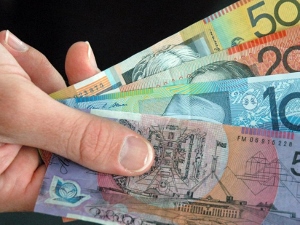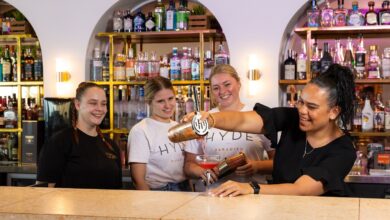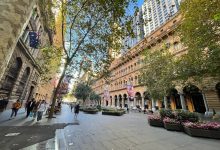
Weak dollar expected to lift domestic travel
TNS research has unearthed Australians’ motivations for domestic and international travel amidst the changing economic and retail landscape.
Latest research findings released today by TNS reveal Australian’s renewed desire to relax, reconnect and rejuvenate through domestic travel experiences and indicate how the tourism sector may be impacted. “Over the past five years, a high Australian dollar set against a weak US dollar made it difficult to justify the cost of an Australian holiday, particularly when overseas ‘shopping holidays’ and luxury services and accommodation were so affordable,” said Ed Steiner, head of travel and leisure at TNS Australia.
“We’re now on the verge of a sea change where shifts in the economic landscape and Australians’ renewed interest in local R&R and food and shopping experiences create a significant opportunity for the travel and retail sectors. This opportunity is greatest for those businesses that understand the difference between cost and value.”
Sponsored by AMP Capital Shopping Centres, TNS’s study serves as a business case for Australian retailers to capitalise on the expected domestic travel surge.
AMP Capital Shopping Centres managing director, Bryan Hynes said that the business has recognised the importance of the tourism dollar to its shopping centres.
“We know at our Gold Coast shopping centre, Pacific Fair, more than 40 per cent of our sales come from tourist dollars. We understand that the visitor economy is key to any successful shopping centre, especially in places like the Gold Coast, which has around 12 million visitors a year. This is why we are redeveloping the centre to be an attractive proposition for both tourists and residents.
“We are currently redeveloping the centre into a premium destination that will not only attract the tourist retail dollar but will give visitors the opportunity to dine and be entertained all in the one place,” Mr Hynes said.
Key themes that emerged from this year’s Domesticate report include:
Shopping = reason to travel in Australia?
While shopping has not traditionally been a motivator for domestic travel, nearly every Australian concedes it is undertaken on all excursions: 85 per cent enjoy general browsing and shopping in a shopping centre, 79 per cent in an arts and crafts market and 66 per cent in a farmer’s market. Similarly a majority go to the shopping centre for food and grocery (78 per cent) or a quick bite to eat (76 per cent). “That’s an enormous amount of traffic,” commented Steiner. “And while the quality of the Australian offer is not well regarded due to perceived higher prices and less range, these barriers are being eroded by new offers and a falling dollar.”
But where to shop?
Markets proved to be universally enjoyed and the domain of the visitor economy. The study shows a strong desire for market experiences even by those who claim not to enjoy shopping. The unique items on offer, proximity to other experiences and open air environment are among the market’s primary draw cards. Steiner added: “Still though, to compete with international markets such as in Asia and Europe, the experience must be tied to the uniqueness of the locality. Shopping environments must match the destination. And while markets offer the ideal, shopping centres are still the reality for most travelling Australians and we need to be exploring how we can merge the two.”
Short breaks are one of the cornerstones of domestic travel
After being in decline from 2003 to 2008, domestic visitor nights has seen a consistent increase since 2009. For the year ending September 2014, overnight domestic travel was worth over $53.7 billion to the Australian economy, an uptick of over 4 per cent year over year. As well there has been consistent growth in day trips since 2005.
High expectations for high standard accommodation!
Travellers of all ages are spending more on accommodation than in the past. Even among younger travellers, there is a changing sentiment for the need and not just desire to stay in quality accommodation. “Holiday accommodation creates the basis of a good holiday therefore extra spend is acceptable and merited,” said Steiner. “That many can afford and prefer nicer accommodation is a reflection on our strong economy.”
New Zealanders love an Aussie holiday.
With over a quqrter of the population visiting annually, the study found that top motivators for New Zealanders’ interest in taking holiday in Australia included to relax (60 per cent), to reconnect with loved ones (52 per cent) and to shop (51 per cent). A majority (67 per cent) visit Australian shopping centres to experience different stores to what they have at home.
“This year’s report shows us that to reach Australian travellers, businesses must understand the importance of personal interactions and Australian’s desire for to be laid back, relaxed and in comfort. The confluence of economic conditions, an increasingly global retail environment, and renewed interest in travelling in Australia suggest we will see a healthy tourism sector in the coming year. This creates further impetus on those in hospitality, retailers and food purveyors to offer unique experiences across Australia’s regions.”
TNS’s annual Domesticate study now in its eighth year explores consumer behaviours across Australia and New Zealand to identify motivations for domestic and international travel. For more details, please contact: [email protected].







